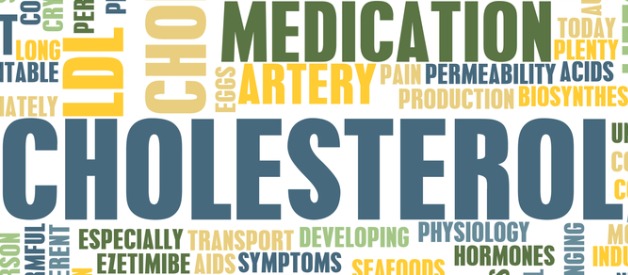
One of the most important things a diabetic can know is how their blood glucose levels can affect the other parts of the body. Even though the body is broken down into various systems, ie cardiac, respiratory, muscles, etc, they all work together and are affected by one another. Any disorder in the body, even if it is technically isolated to one part, can have effects on other systems. For example, someone with a respiratory disorder has trouble bringing in oxygen. This can make the heart work harder to get oxygen to the rest of the body.
Due to the set up of the human body, diabetes can actually cause high cholesterol levels, especially if blood glucose levels are not controlled. The various chemicals (hormones) that are secreted by the pancreas have control over cholesterol levels and blood sugars. Here, we will explain how the pancreas works, and how the effects of diabetes can prevent the body from being able to control your cholesterol levels and vice versa.
The Role of the Pancreas
The association of high cholesterol and diabetes is because the pancreas has the ability to control both in many situations. However, the effects diabetes has on the pancreas can actually prevent the body from properly managing cholesterol.
When you eat, the pancreas secretes several different chemicals. These chemicals are pushed into the digestive system and others into the blood stream to help break down various parts of your meal. This will answer a lot of questions about diabetes, and also make you aware of other problems you could encounter while trying to get your blood glucose levels under control.
The first set of chemicals that are secreted are Trypsin and chymotrypsin, which are essentially fancy names for chemicals that break down the proteins found in meats, beans, cheese, and lentils.
The second chemical that is secreted is Amylase, it is sent to break carbohydrates down into usable energy.
The third chemical that is secreted is Lipase, it is used to break down fats into useable and unusable parts, fatty acids and cholesterol.
The relation that this has to diabetes is due to other hormones that are created in the pancreas, these go straight into the blood stream. Insulin is created and released into the blood stream when the body senses that the blood sugar is too high, and to counteract low blood sugar it releases glucogen.
Diabetics do not create enough insulin in their pancreas to properly manage blood sugar. Damage to the pancreas that is caused by diabetes can also limit the amount of lipase that is produced. This can cause cholesterol to build up faster than it typically would.
The Relation between Diabetes and High Cholesterol
Because the body is focused on trying to create insulin that it cannot, the pancreas does not have all of the intended focus on breaking down fatty acids and cholesterol, which allows more of it to slip into the blood stream through the intestines. This means that diabetics are at a higher risk for developing high cholesterol especially if their blood sugars are not controlled.
Because the body is preoccupied, it doesn’t have time to sort out good cholesterol (HDL) from good cholesterol (LDL). Studies have shown that people with diabetes have up to a 40% increase in LDL levels which is essentially the basis of high cholesterol.
Enjoyed this article? Try reading these as well . . .
Low-Stress Meals For Diabetics
3 Questions Diabetic Patients Should Ask About Their Heart
4 Ways to Help Your Insulin Work For You

Speak Your Mind
You must be logged in to post a comment.